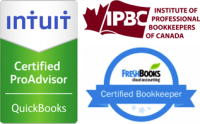So you snagged your Christmas gifts and hung the ornaments on your tree, and it’s the early days of December! Now you’re thinking about how you can maximize your savings come tax time in 2024. Who are you?
Santa’s coming to your house, no doubt!
We don’t have a naughty or nice list but we do have a list of productive ways you can tackle your tax-time angst NOW and stay on top this holiday season.
Year-End Benefits for Salaried Employees:
- Evaluate your income: You should evaluate your income and current RRSP contributions. This will allow you to determine if you need to make or want to make any additional contributions before the RRSP deadline of March 1. Making the correct amount of contribution can help to decrease or eliminate any balance you may end up owing on your taxes.
- Book a massage: This is the perfect time of year to use up any unused portions of your extended health coverage as chances are low that your insurer will roll over any unused benefits into the new year. So book that massage you have needed all year or buy that funky pair of glasses you have had your eye on since you saw them on the cover of Vogue!! You pay for your benefits; make sure you are getting your money’s worth.
- Defer your Bonus: Depending on how much income you have earned over the year it may be in your best interest to ask your employer to defer your end-of-year bonus until January the following year. Not only will this allow you to revive your bank account after Christmas left it on life support, it will also allow you to defer your tax liability.
Other year-end tax-saving tips:
You can start by organizing eligible tax credits—charitable donations, education and healthcare expenses.
- Make Charitable Donations
- Installment Payments – make them before the end of December to avoid installment interest on your tax return next year.
- Tax-loss selling
- NEW First Home Savings Account (FHSA): If you are a first-time home buyer who is a resident of Canada and at least 18 years of age, the FHSA allows you to save on a tax-free basis towards the purchase of a home in Canada, according to CIBC . This is the first year that the FHSA has been available.
“Starting in the year that you open an FHSA, you can contribute (or transfer from RRSPs) a total of $8,000 plus any carryforward available from the previous year (for a maximum of $16,000 in any year), and up to $40,000 during your lifetime. In 2023, if you qualify to open an FHSA, your contribution cannot exceed $8,000 as you cannot have any carryforward available. You can claim a tax deduction for contributions within this limit, in 2023 (or a future year if not claimed previously). Unlike RRSPs, contributions you make within the first 60 days of 2024 cannot be deducted in 2023. “



